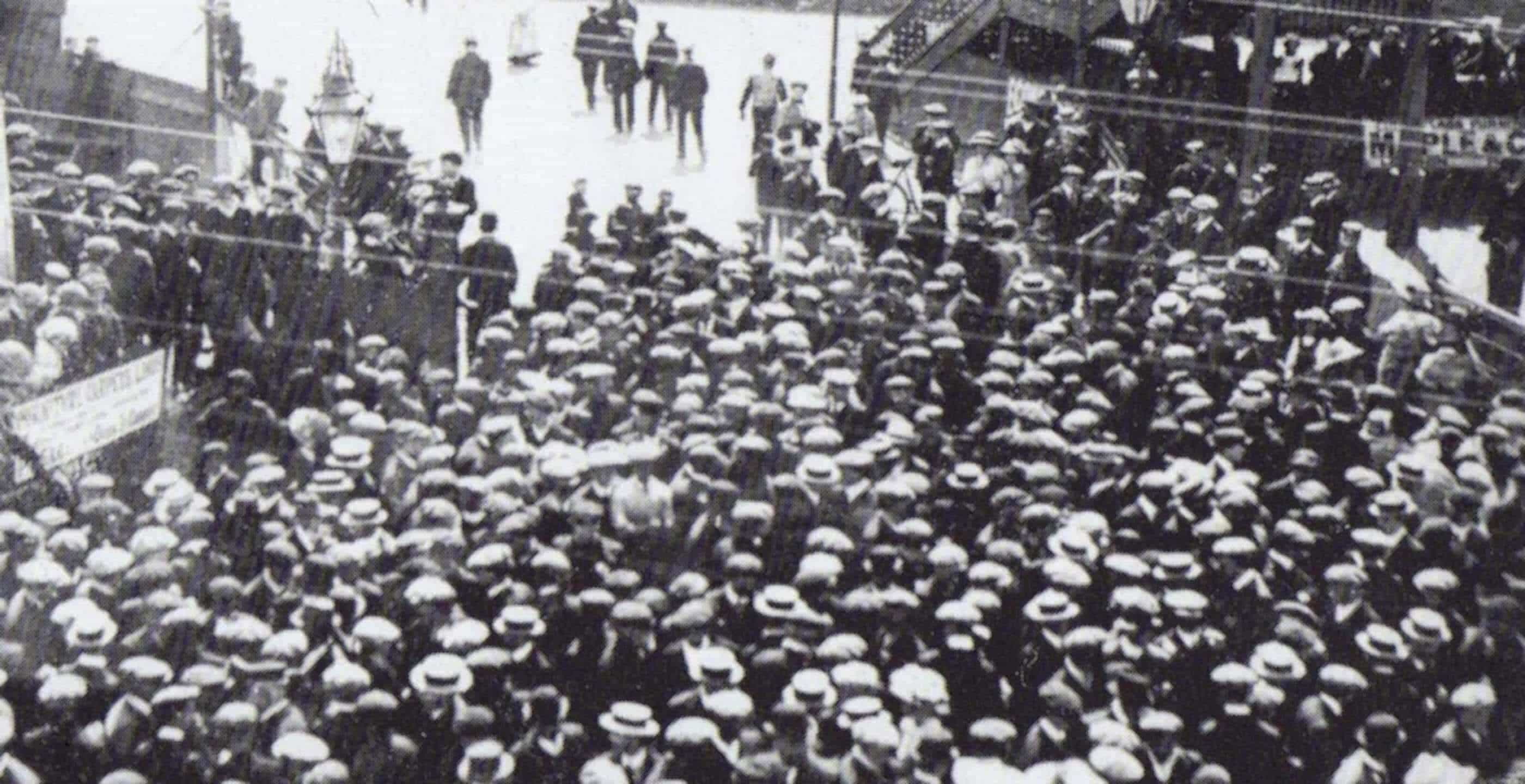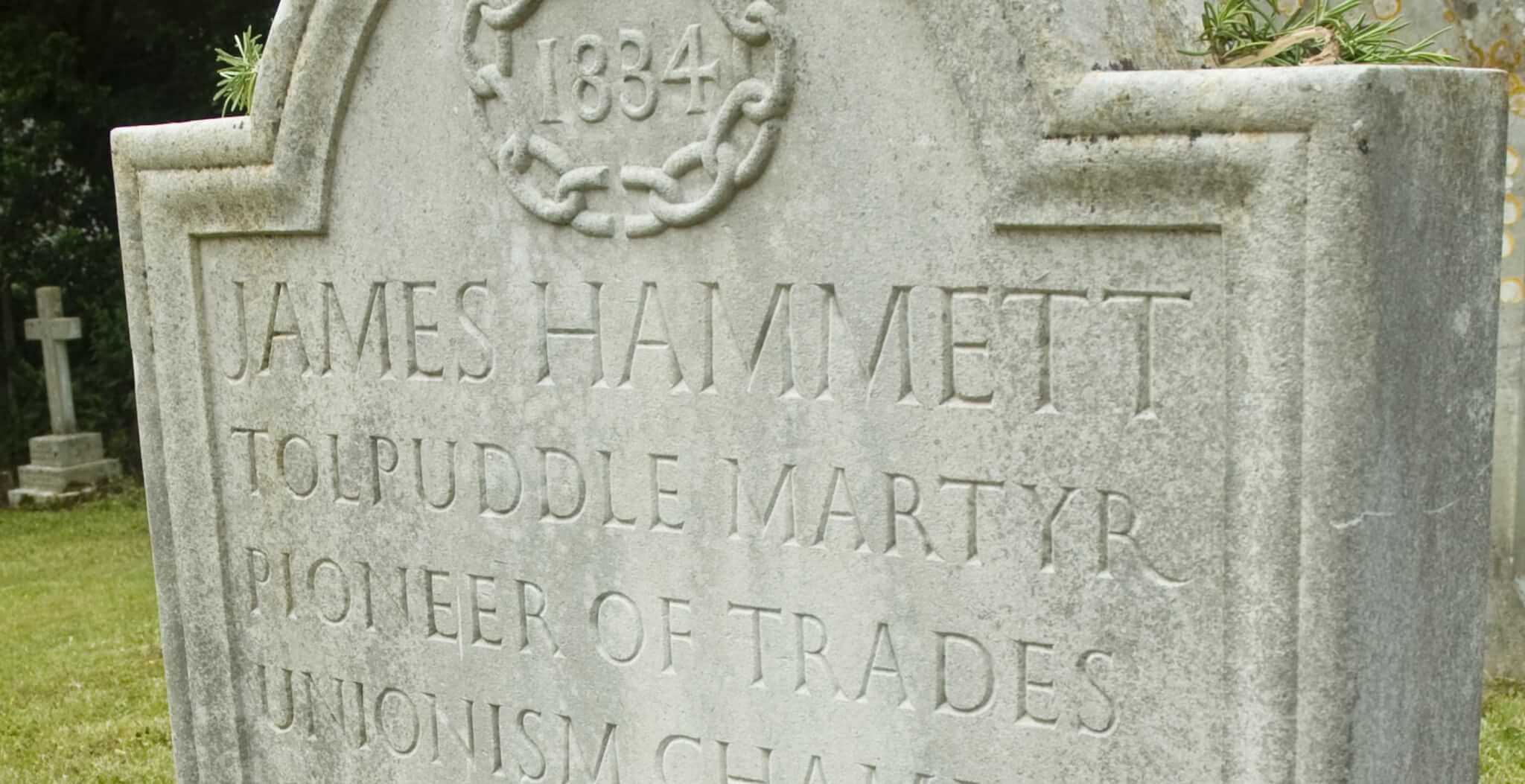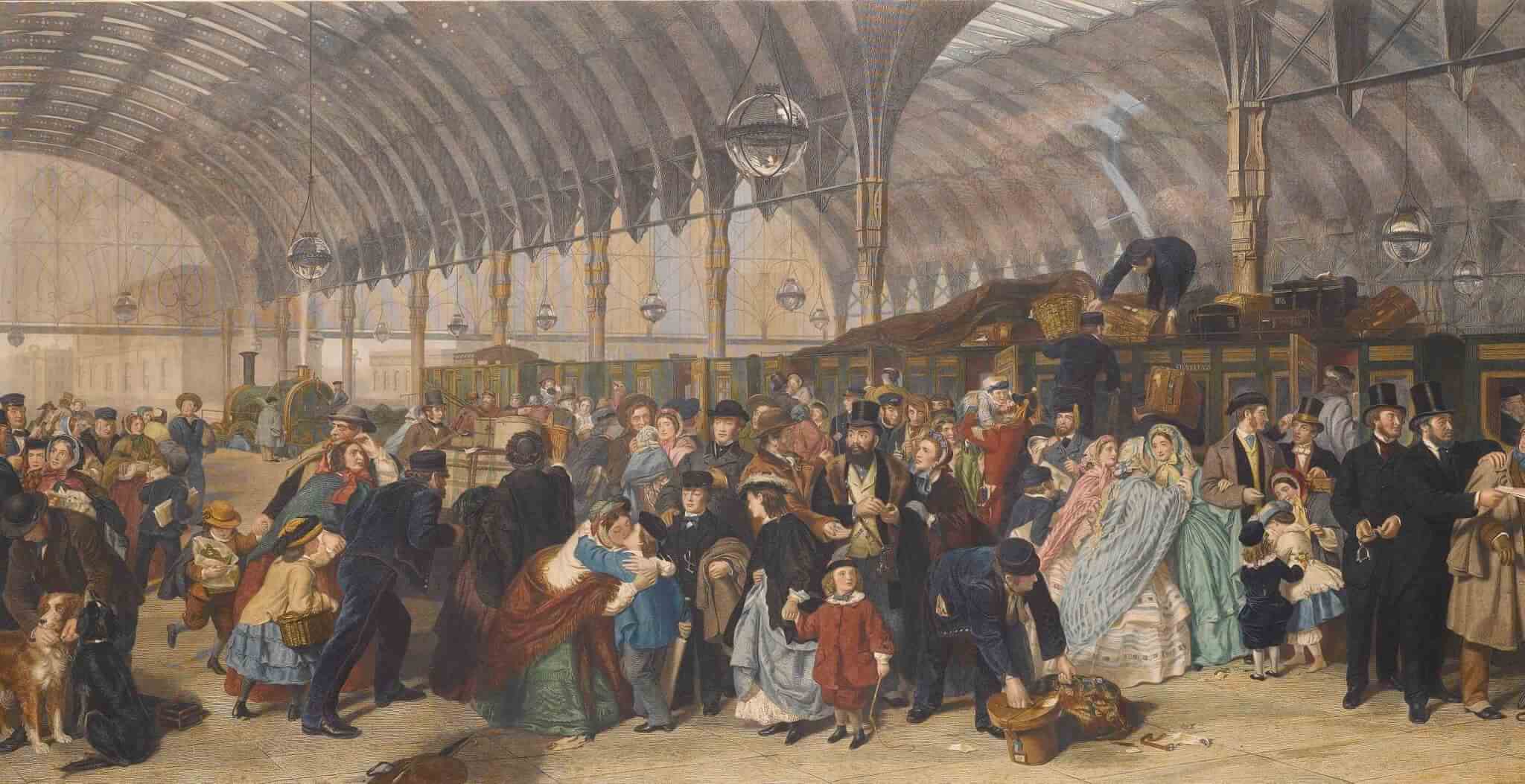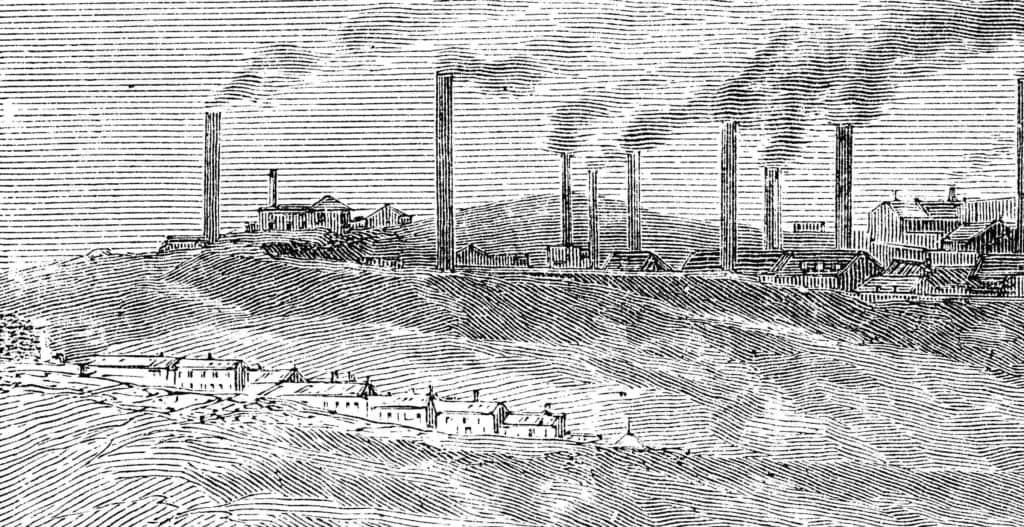Although often overshadowed by the outbreak of the First World War in August 1914, Britain experienced a period of significant industrial conflict during 1910 – 1914, which was to become known as ‘the Great Unrest’.
Between 1910 – 1912, the working classes stood together to strike against unfair wages and working conditions. The Triple Alliance was formed by the National Union of Mineworkers, the National Union of Railwaymen, and the National Transport Workers’ Federation, which supported dock workers, seamen, tramway men, and road vehicle workers.
It was during this time that the very first railway strikes took place throughout Britain, when railway workers in towns and cities across the UK went on strike over pay, angry at the low wages and enforced overtime they faced while the railway companies were making huge profits.
It was during a two day strike in August 1911 that the Llanelli Railway Riots took place. On the eve of the strike, Thursday 17 August, the 500 or so Llanelli railway workers held up the trains at one of the town’s level crossings, joined in a show of solidarity by their marginally better paid colleagues from the tin works and coal mines.
For the next two days the strikers did not allow trains to pass through the town, picketing and even blocking the tracks with their own bodies. The strikers were watched over by the armed forces, who had been sent to Llanelli and other towns affected by the strike to restore order and were a common sight in the industrial areas of south west Wales at that time. Despite the Riot Act having been read to the assembled crowds, when one train did manage to get through on Saturday 19 August, the strikers chased after it. In an ill-thought-out attempt to take control of the situation, the troops were ordered to shoot into the unarmed crowd by their commanding officer.
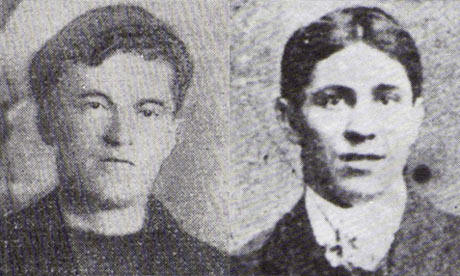
Two men left dead.
At first, believing the troops to be firing blank rounds as a scare tactic, the crowds were not unduly worried and continued to stand their ground. However, when the bullets began to find their targets and men fell, bleeding heavily, the crowd panicked and tried to flee.
There were two fatalities of the gunfire, neither of whom were directly involved in the riots but were caught up in the ensuing mayhem. John “Jac” John a 21 year old local tin-plate worker and gifted rugby player for the local side, the Llanelli Oriental Stars, was the first casualty. Jac had arrived on the scene in a show of support to the rail workers and was killed when a bullet pierced his lung. The other victim, Leonard Worsell, was a 19 year old labourer from the London suburb of Penge, who was spending a weekend’s leave in Llanelli whilst being treated for tuberculosis at the local Allt Y Mynydd sanatorium. Leonard had not been involved in the riots at all and was killed by a shot through the heart when he left his residence mid-shave to see what had caused the commotion outside.
News of the deaths spread quickly. In the wake of the killings the soldiers were instructed to stand down their weapons and tried to restrain the crowds with the help of the police. However, members of the community who had been attending a town meeting at the time of the riots rushed to the railway station to join the strikers and their supporters to protest the killing of unarmed men by the military. The angry crowds smashed windows and vandalised the station, which was later looted, as were the home and shop belonging to the magistrate responsible for calling the military to police the strike (who happened to be a shareholder of the Great Western Railway Company).
The same afternoon railway trucks loaded with detonators were also set on fire. One man was killed outright in the ensuing explosion and a further three men died from the injuries they sustained.
Sadly, as it turned out, when Jac and Leonard were shot and killed the national railway strike had already been settled and the British railway workers had been granted better pay and conditions.
However, the lasting legacy of the Llanelli railway strike and other similar workers protests during the Great Unrest is the introduction of the first basic legal rights for the British working class, in what Martin Luther King later called “the voice of the unheard”.
Published: 5th March 2014
